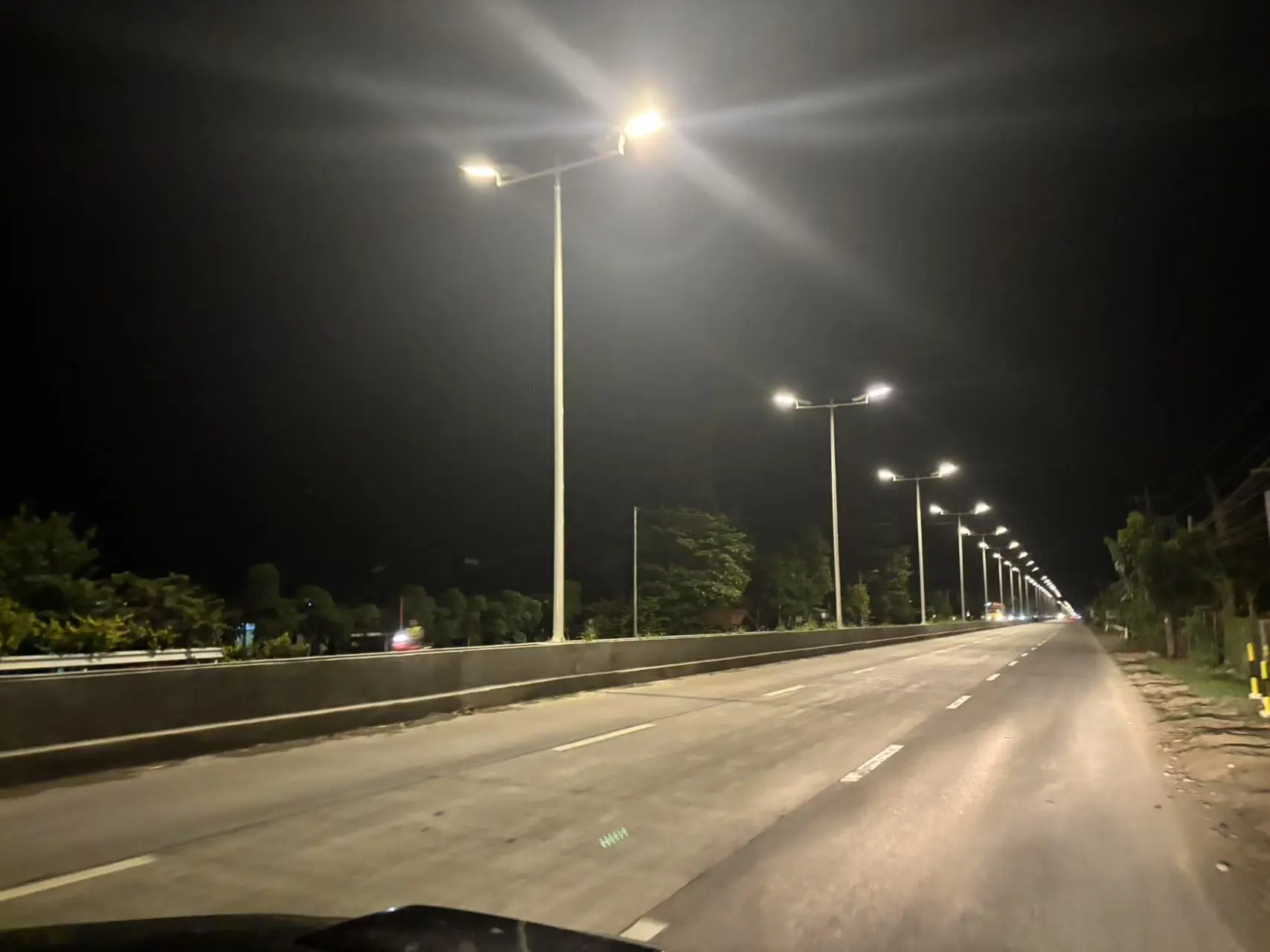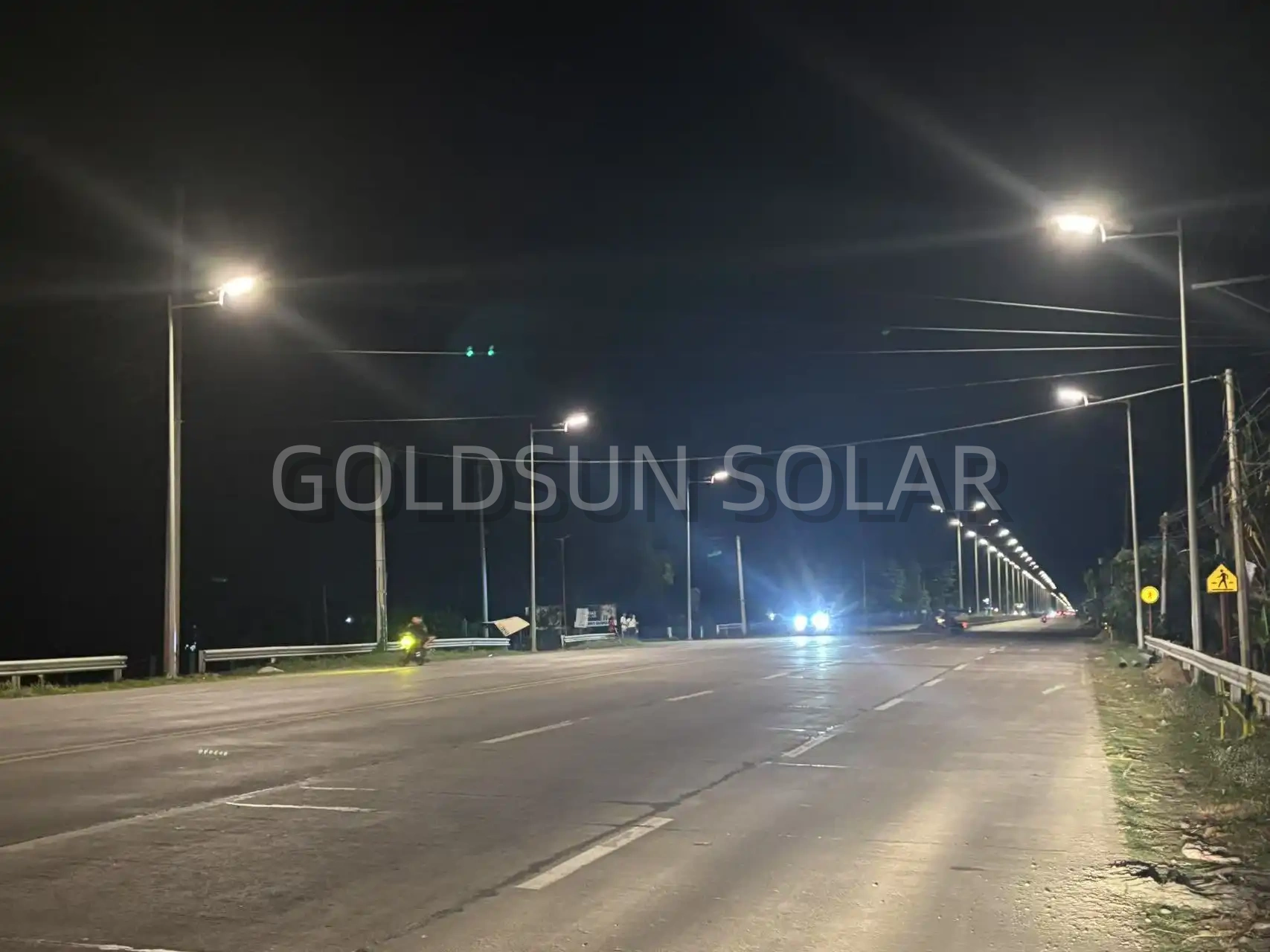150w Solar Street Light Certifications for Global Compliance
As the world shifts towards sustainable energy solutions, 150w solar street lights have become increasingly popular for illuminating public spaces and roadways. However, to ensure these lights meet global standards for safety, performance, and environmental impact, various certifications are required. This blog explores the essential certifications for 150w solar street lights, their importance in global compliance, and how they contribute to the widespread adoption of solar lighting technology.

What are the key certifications required for 150w solar street lights?
ISO 9001 Certification
ISO 9001 is a crucial certification for manufacturers of 150w solar street lights. This internationally recognized standard ensures that companies have implemented a robust quality management system. For solar street light producers, ISO 9001 certification demonstrates their commitment to consistently meeting customer requirements and enhancing customer satisfaction. The certification process involves thorough audits of manufacturing processes, quality control measures, and continuous improvement initiatives. By adhering to ISO 9001 standards, manufacturers of 150w solar street lights can ensure that their products are of high quality, reliable, and meet the specifications required by customers and regulatory bodies worldwide.
CE Marking
The CE (Conformité Européenne) marking is essential for 150w solar street lights to be sold in the European Economic Area (EEA). This certification indicates that the product complies with the applicable EU directives and regulations concerning safety, health, and environmental protection. For solar street lights, CE marking involves compliance with several directives, including the Low Voltage Directive (LVD), Electromagnetic Compatibility (EMC) Directive, and the Restriction of Hazardous Substances (RoHS) Directive. Manufacturers must conduct a conformity assessment, set up a technical file, and sign a Declaration of Conformity before affixing the CE mark to their 150w solar street lights. This certification not only allows access to the European market but also serves as a mark of quality and safety for consumers worldwide.
UL Certification
Underwriters Laboratories (UL) certification is particularly important for 150w solar street lights intended for use in North America. UL is a globally recognized safety certification company that tests products to ensure they meet specific safety standards. For solar street lights, UL certification typically involves compliance with UL 8750 (LED equipment for use in lighting products) and UL 1598 (luminaires). The certification process includes rigorous testing of electrical components, thermal management systems, and overall product safety. Obtaining UL certification for 150w solar street lights demonstrates that the product has been thoroughly evaluated for potential safety hazards and meets the stringent requirements set by North American regulatory bodies.
How do environmental certifications impact the global acceptance of 150w solar street lights?
RoHS Compliance
The Restriction of Hazardous Substances (RoHS) directive is a crucial environmental certification for 150w solar street lights. This European Union directive restricts the use of specific hazardous materials found in electrical and electronic products. For solar street lights, RoHS compliance ensures that components such as LEDs, batteries, and electronic circuits do not contain restricted substances like lead, mercury, cadmium, and certain types of flame retardants. Manufacturers must provide documentation and conduct regular testing to maintain RoHS compliance. By adhering to RoHS standards, 150w solar street light producers demonstrate their commitment to environmental protection and human health, which is increasingly important for global acceptance and market access.
WEEE Directive Compliance
The Waste Electrical and Electronic Equipment (WEEE) Directive is another important environmental certification for 150w solar street lights, particularly in the European Union. This directive aims to reduce the environmental impact of electrical and electronic equipment by promoting recycling and proper disposal. For solar street light manufacturers, compliance with the WEEE Directive involves designing products for easy disassembly and recycling, providing information to treatment facilities, and participating in take-back schemes. By adhering to WEEE requirements, producers of 150w solar street lights contribute to the circular economy and demonstrate their commitment to sustainable practices, which can significantly enhance their global market acceptance.
Energy Star Certification
While primarily associated with consumer products, Energy Star certification is gaining importance for outdoor lighting, including 150w solar street lights. This voluntary program, backed by the U.S. Environmental Protection Agency and the Department of Energy, promotes energy-efficient products. For solar street lights to achieve Energy Star certification, they must meet specific criteria for energy efficiency, light output, and durability. This certification not only helps customers identify energy-efficient options but also provides a competitive advantage for manufacturers in the global market. Energy Star certified 150w solar street lights demonstrate superior energy performance, which can be particularly appealing for municipalities and organizations looking to reduce their environmental impact and energy costs.
What role do performance certifications play in the global market for 150w solar street lights?
IEC 62108 Certification
The International Electrotechnical Commission (IEC) 62108 certification is crucial for ensuring the reliability and performance of 150w solar street lights in various environmental conditions. This standard specifically addresses the design qualification and type approval of concentrator photovoltaic (CPV) modules and assemblies. For solar street light manufacturers, compliance with IEC 62108 involves rigorous testing of the solar panels used in their products. Tests include thermal cycling, humidity freeze, and outdoor exposure, among others. By obtaining this certification, producers of 150w solar street lights can demonstrate that their products can withstand harsh environmental conditions and maintain performance over time, which is essential for global market acceptance, especially in regions with extreme climates.
LM-79 and LM-80 Testing
LM-79 and LM-80 are two important testing methodologies developed by the Illuminating Engineering Society (IES) that play a significant role in the performance certification of 150w solar street lights. LM-79 testing provides a standardized method for measuring the photometric performance of LED lighting products, including total luminous flux, electrical power, efficacy, and color characteristics. LM-80, on the other hand, focuses on measuring the lumen maintenance of LED light sources over time. For solar street light manufacturers, these tests are crucial in providing accurate and reliable data on the performance and longevity of their products. Compliance with LM-79 and LM-80 standards helps build trust with customers and specifiers, as it provides independently verified data on the light output, energy efficiency, and expected lifespan of 150w solar street lights.
IP65/IP66 Ratings
Ingress Protection (IP) ratings are essential performance certifications for 150w solar street lights, particularly the IP65 and IP66 ratings. These ratings indicate the level of protection provided by the light fixture against dust and water ingress. IP65 certification ensures that the light is dust-tight and protected against water jets, while IP66 provides even greater protection against powerful water jets. For solar street lights, which are constantly exposed to outdoor elements, these certifications are crucial in ensuring long-term reliability and performance. Manufacturers must design and test their 150w solar street lights to meet these stringent standards, which often involve subjecting the products to simulated harsh weather conditions. IP65/IP66 certifications not only demonstrate the durability of the product but also provide assurance to customers that the lights will continue to function effectively in various environmental conditions, making them more attractive in the global market.
Conclusion
Certifications play a crucial role in ensuring the global compliance and acceptance of 150w solar street lights. From quality management systems like ISO 9001 to safety certifications such as CE and UL, and environmental standards including RoHS and WEEE, these certifications demonstrate a product's quality, safety, and sustainability. Performance certifications like IEC 62108, LM-79/LM-80 testing, and IP ratings further validate the reliability and efficiency of solar street lights. As the demand for sustainable lighting solutions continues to grow worldwide, these certifications will become increasingly important in differentiating high-quality products and fostering trust among consumers and regulators alike.
Yangzhou Goldsun Solar Energy Co., Ltd. is a leading manufacturer and supplier of solar street lights, with an annual production capacity of 10,000-13,500 sets. Our products are ISO9001 certified and comply with CE, RoHS, SGS, and IEC 62133 standards. We have installed over 500 solar street light projects in more than 100 countries, including UNDP, UNOPS, and IOM projects. Offering 5-year warranties, customized solutions, and OEM support, we ensure fast delivery and strict packaging. Visit our factory or arrange third-party inspections (e.g., SGS) before delivery. For inquiries, contact us at solar@gdsolarlight.com.
References
- International Organization for Standardization. (2015). ISO 9001:2015 Quality management systems — Requirements.
- European Commission. (2021). CE marking.
- Underwriters Laboratories. (2020). UL 8750 Standard for Light Emitting Diode (LED) Equipment for Use in Lighting Products.
- European Parliament and Council. (2011). Directive 2011/65/EU on the restriction of the use of certain hazardous substances in electrical and electronic equipment (RoHS).
- International Electrotechnical Commission. (2016). IEC 62108:2016 Concentrator photovoltaic (CPV) modules and assemblies - Design qualification and type approval.
- Illuminating Engineering Society. (2008). LM-79-08 Electrical and Photometric Measurements of Solid-State Lighting Products.


Yangzhou Goldsun Solar Energy Co.,Ltd.
